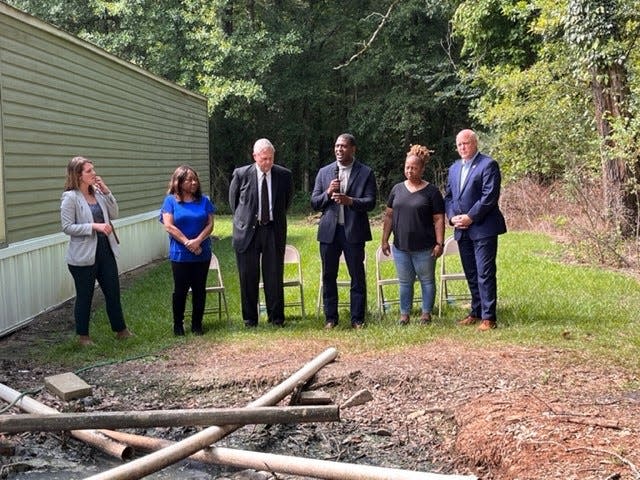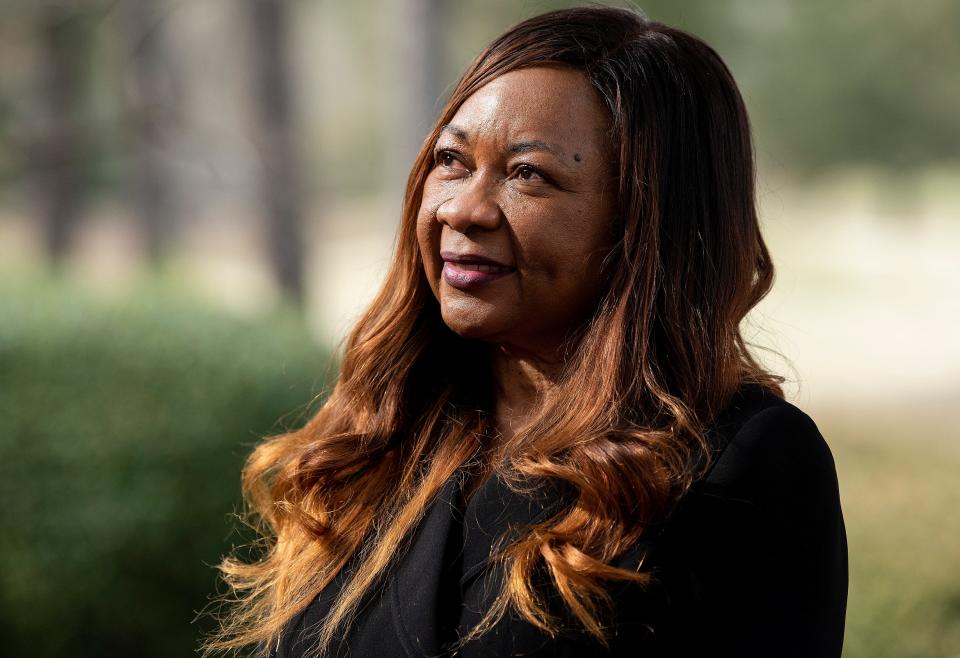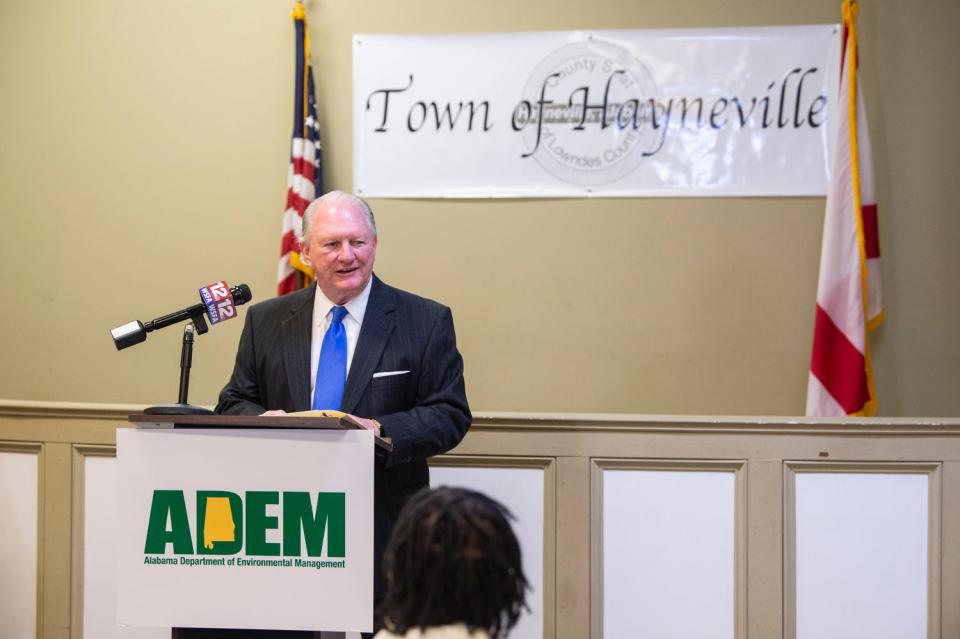EPA investigates whether Alabama discriminated against Black residents without sewer access
The U.S. Environmental Protection Agency opened an investigation into the Alabama Department of Environmental Management on Tuesday, specifically analyzing whether ADEM discriminated against communities of color in its distribution of funds for wastewater infrastructure.
An ADEM spokesperson said there has been no discrimination, and the agency asserts that disadvantaged Black Belt areas received funding at three times the rate of other areas in 2022.
This investigation comes after decades of publicity surrounding the severe lack of adequate wastewater management systems throughout Alabama's Black Belt. There are hundreds of homes in the region that don't have working septic tanks, and many of them either continue to use the tanks in disrepair or resort to a method called straight piping. Both actions can result in puddles of raw sewage dangerously near the living quarters.
For years, politicians would tour the homes of Alabamians managing their wastewater without proper infrastructure, and some cities and townships would receive bits of support from government entities or nonprofits. But when environmental justice activist Catherine Coleman Flowers published her book "Waste" in 2020, even more of a spotlight shone on the issue, particularly in the area where Flowers is from in Lowndes County.

Millions of federal dollars were sent to the region for wastewater infrastructure funding, local nonprofits stepped up to implement solutions, and people took a closer looks at how so many Alabamians ended up in a place where disposing of sewage through PVC pipes that led to their backyards was accepted as normal.
“Sanitation is a basic human right that every person in this country, and in the state of Alabama, should have equal access to. Those without proper sanitation access are exposed to illness and serious harm,” Flowers said in a statement. “We are hopeful that the EPA’s investigation will result in positive change for any Alabama resident currently relying on a failing onsite sanitation system and for all U.S. communities for whom justice is long overdue.”
The EPA investigation is the direct result of a complaint Flowers and two environmental organizations filed in March with the Southern Poverty Law Center under Title VI of the Civil Rights Act of 1964. That complaint alleged that ADEM has adopted policies that make accessing funds in Alabama’s Clean Water State Revolving Fund "nearly impossible" for those who need help with their sanitation situation.

“We filed this complaint in the hopes that it would help not only Alabama’s Black Belt counties, but all 67 counties across the state,” Natural Resources Defense Council Chief Litigation Counsel Aaron Colangelo said in a statement. “Alabama disburses tens of millions of dollars every year through the state revolving fund, but they have never awarded a single dollar of that money to people with onsite sanitation needs. We know they can do better.”
ADEM has vehemently denied the discrimination allegations since the SPLC filed the initial complaint in March. On Thursday, ADEM Chief of External Affairs M. Lynn Battle told the Advertiser that the agency has "made addressing the wastewater and drinking water needs of disadvantaged communities a priority in the awarding of funding made available by ARPA, BIL and the State Revolving Fund programs."
Battle also said that federal audits have found ADEM to be in compliance with all federal requirements, including laws against discrimination.
"ADEM recognizes the challenges faced by poor, disadvantaged and minority communities due to inadequate resources, and the Department takes seriously its commitment to serving all residents of this state in a fair and equitable manner," Battle said. "We, therefore, welcome the opportunity to provide information to EPA to counter the allegations in the complaints and to answer any questions the federal agency might have concerning the funding of wastewater and drinking water projects in the state."
A letter to ADEM Director Lance LeFleur from the EPA on Tuesday emphasized that the initiation of this investigation was not "a decision on the merits," meaning the agency has only reviewed the complaint to find it meets the jurisdictional requirements of an investigation.

Notably, this is not the first time a federal agency has investigated Alabama's handling of its rural wastewater issues. The U.S. Department of Justice concluded its own civil rights investigation about the sanitation issues earlier this year. It found evidence that the health departments of Alabama and Lowndes County discriminated against Black residents, and the DOJ also noted “a consistent pattern of inaction and/or neglect concerning the health risks associated with raw sewage.”
It's unclear how long the investigation will last, but for now, ADEM has until Nov. 2 to send a written statement to the EPA — responding, rebutting or entirely denying the issues under investigation.
Hadley Hitson covers children's health, education and welfare for the Montgomery Advertiser. She can be reached at hhitson@gannett.com. To support her work, subscribe to the Advertiser.
This article originally appeared on Montgomery Advertiser: EPA investigates how Alabama gave out sewage funds in Black Belt towns

